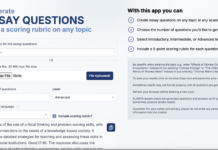Valiente, G. (2010) New copyright law hits opposition Canada.com, August 23
‘Last week, the Canadian Association of University Teachers and the Canadian Federation of Students filed an objection with the Copyright Board over a proposed new royalty program. The program was proposed by Access Copyright, a private non-profit body that licenses literary works to businesses and public institutions.’
As I understand it, Access Copyright acts as agents for royalty collection for all copyright materials used in courses by Canadian universities and colleges. This provides one stop shopping for copyright clearance and payment of a fee per intended user. Thus if I wanted to use in a distance education course an academic article from a journal published by a commercial publisher for a course of 30 students, in the old days I would pay $3.39 + 10 cents per page per student for the right to distribute this material to each of of the 30 students. Thus the university would pay $120 roughly per year per article.
However, Access Copyright wants to apply the same rules for hyperlinks. It is not clear from the report if this is for hyperlinks to anything, or just hyperlinks to copyrighted academic material. Furthermore, they want to up the costs to $45 per student. So if I want to hyperlink to an academic article, this would now cost the university $1,350 per article for a class of 30 students – some hike!
As the report says ‘The case will be heard this fall in front of Canada’s Copyright Board and is expected to highlight the complexities of updating an analog-era copyright law to cover works for an academic community that’s adapting quickly to the digital era.’
Comment (from ‘Puzzled in Kitsilano’)
I find this somewhat curious. There are two kinds of publication, open access and commercially copyrighted publications. Most publications are now available in digital versions, but the commercially copyrighted publications require a password and usually online payment to access the articles. University libraries often pay substantial fees to license commercially published articles available online, and make them available to ‘university members’ (e.g. staff and students), as do university bookstores for course materials.
Why would anyone now need to go through Access Copyright, unless they can provide a quicker and cheaper online service than going directly to the publishers?
For instance to buy a single article from Taylor and Francis’s publication, Distance Education, you would pay only $30, so why would I ask the university to go through Access Copyright and charge students $45? (And why is the academic journal Distance Education not open access? I can understand the need for a publisher when it was printed and needed physical distribution, but now it’s completely online. Why do they still need a publisher, especially since none of the contributors or their institutions get any royalties? But that’s another matter.)
If anyone can answer these questions, I would be really grateful.









 Dr. Tony Bates is the author of eleven books in the field of online learning and distance education. He has provided consulting services specializing in training in the planning and management of online learning and distance education, working with over 40 organizations in 25 countries. Tony is a Research Associate with Contact North | Contact Nord, Ontario’s Distance Education & Training Network.
Dr. Tony Bates is the author of eleven books in the field of online learning and distance education. He has provided consulting services specializing in training in the planning and management of online learning and distance education, working with over 40 organizations in 25 countries. Tony is a Research Associate with Contact North | Contact Nord, Ontario’s Distance Education & Training Network.


Tony;
Your question about the journal Distance Education is an excellent one. The same could be asked about Open Learning (a misleading name since it is a closed journal), British Journal of Educational Technology, the American Journal of DE and others. One way to help bring an end to this ridiculous situation where we give away our publicallly-funded content so that publishers can sell it back to us is to stop doing it. Authors can choose to submit only to open access jpurnals There many excellent open access distance education and educational technology journals and Canada is home to three of them: Journal of Distance Education, Canadian Journal of Learning Tecnology and the International Review of Research in Open and Distance Learning.
Hi, Mark
Thanks for your comment. I agree, but it’s not just online journals. As you and I know, publishers such as IGI Global not only pay no royalties to authors, but also charge extremely high prices ($180 plus) for printed copies. Unfortunately, the authors of chapters in books such as these don’t realise this until the get a contract, after the chapter has been accepted for publication. For a smart profession, I think we’re pretty dumb.
Hi Tony,
My understanding is that Access Copyright’s proposed new tariff of $45 is a base payment for each student in the institution. I think they recognize that the bulk of what was previously licenced through them (course-pack readings etc.) are now accessible online through the library. These articles can be printed or saved by individual students under Fair Dealing, negating the need for payment under the old regime.
The vast majority of courses that I deal with can get by just fine without our institution signing on to Access Copyright.